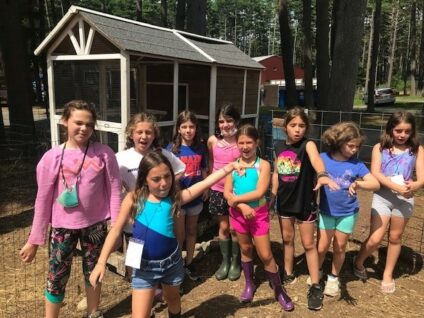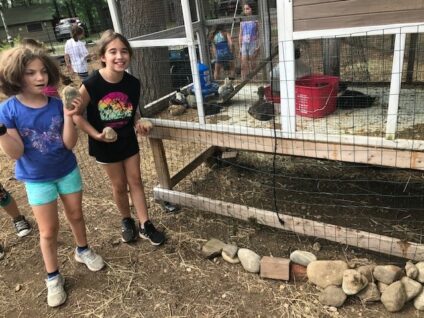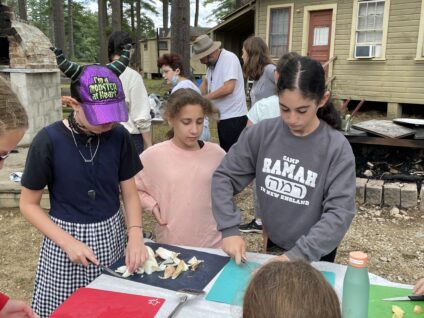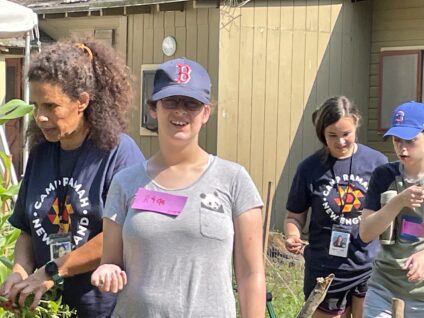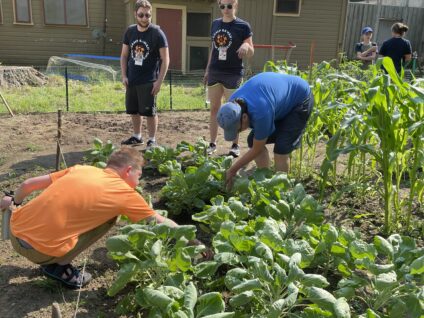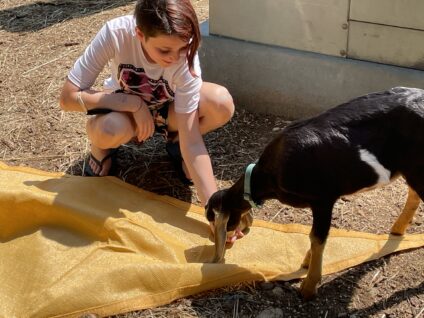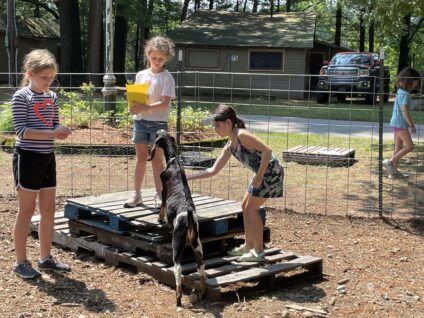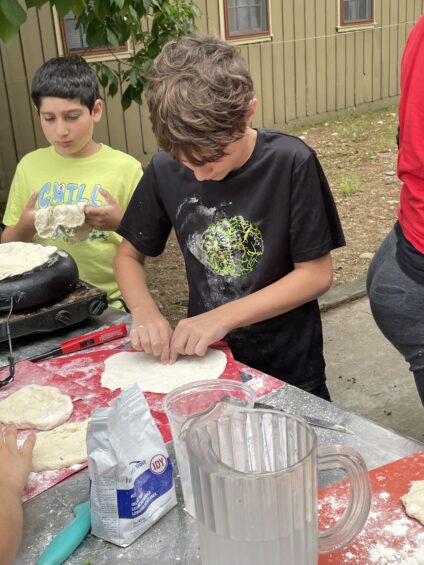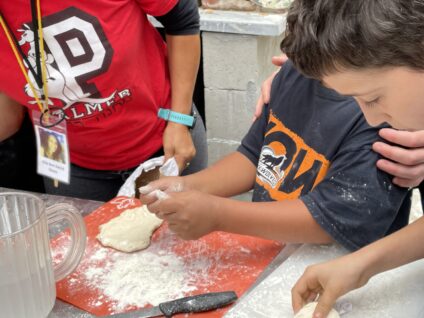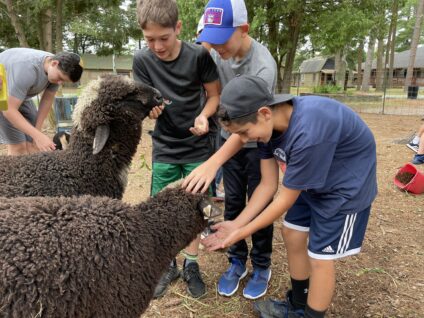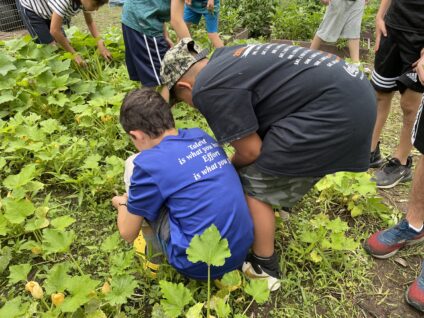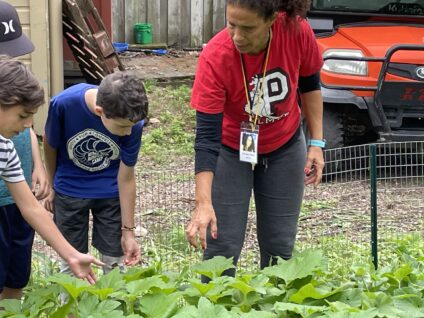Pinat Teva (Nature Corner): Hands-On Learning & Great Fun!
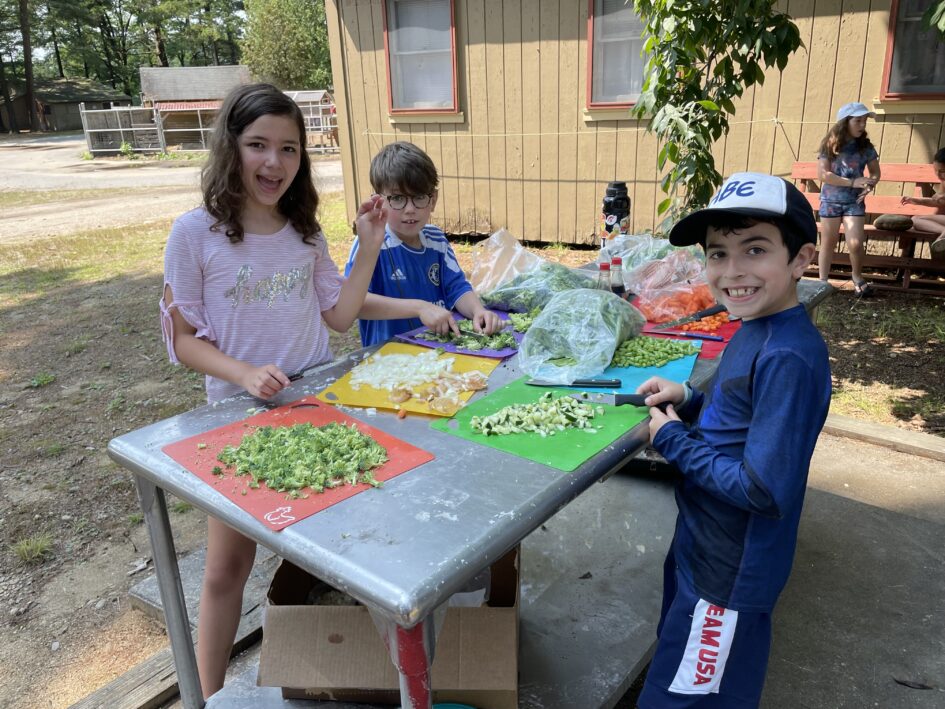
Several years ago, Camp Ramah New England developed the Pinat Teva (Nature Corner), a wonderful area of the camp that includes the Pinat Chai (animal corner), a large lush garden, and multiple outdoor cooking areas. It has become a bustling place for hands-on learning, and a center for plain old fun!
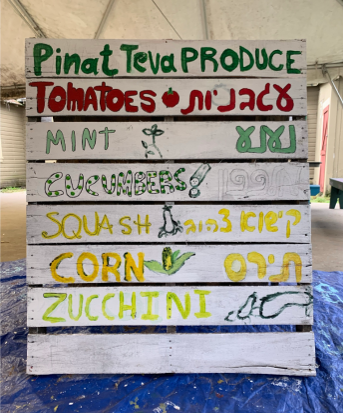
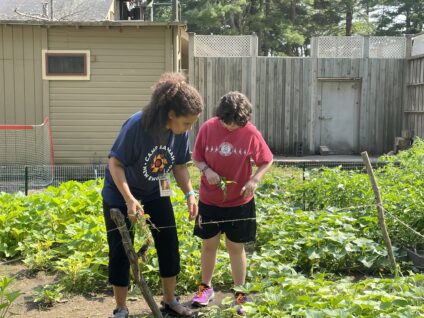
The Pinat Teva program encourages chanichim (campers) to seek and understand a Torah connection between the earth and her people, with a focus on our responsibility to and relationship with our natural environment. An important focus is to spur chanichim to think about and appreciate where their food comes from.
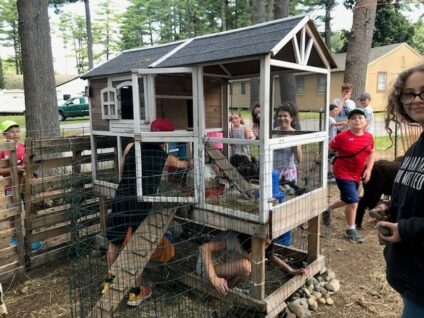
In the Pinat Chai, through hands-on experiences, chanichim gain a deeper understanding of what animals need to survive and thrive, and our jobs in this cycle. Chanichim love to visit and feed the animals: sheep, goats, chickens and ducks (including baby chicks and ducklings). They built a new pen for the younger chickens and ducks (and have gone fishing when the work is done!). David Green, who leads this program, emphasizes that in Judaism, we all have a responsibility toward nature. “It is essential to who we are as Jews, and as human beings.” He teaches chanichim about the importance of behaving “mindfully toward animals and plants.”
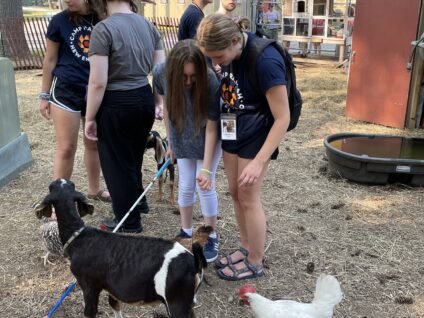
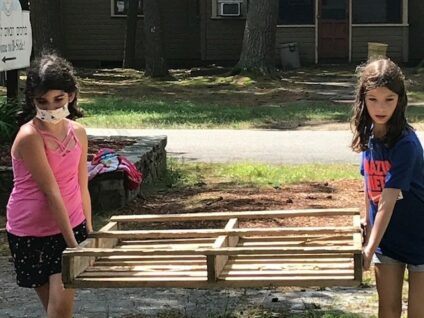
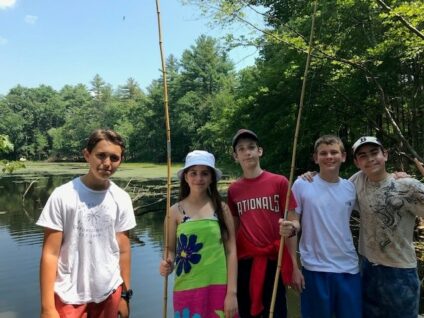
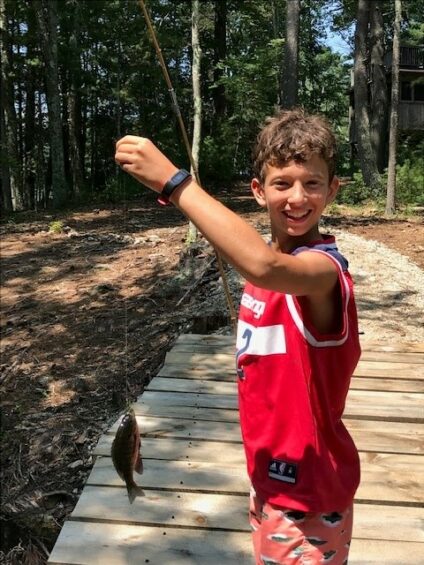
Gila Ben David Stone and Rabbi Andrew Shapiro Katz lead the garden and outdoor cooking programs, respectively. When Gila arrived from Israel in late June, the garden was overrun with weeds. Soon, she was leading the chanichim on a “termite attack,” her term for working with the chanichim at the beginning of each perek (session) to attack the constantly growing weeds. Now, the chanichim take great pride in their thriving garden – and are learning the Hebrew words for the plants that yield food. Chanichim are learning how to use garden tools and the best ways to encourage the plants to yield food. They are thrilled to be able to taste the herbs that have grown all summer, and the fruits and vegetables that are now ripening: zucchini, other squashes, peppers and green tomatoes (fried, of course!).
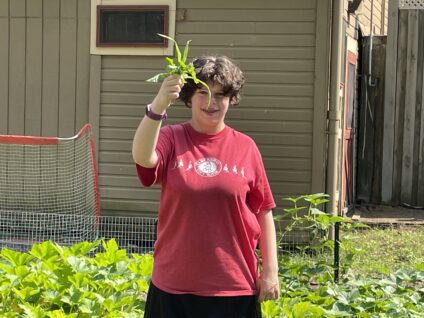
Andy focuses on a “farm to table” experience. Many of the foods that are cooked – from vegetables and herbs to eggs – are grown right in the Pinat Teva. Chanichim are encouraged to relate to food differently when they have a hand in growing, prepping and cooking and when they get to see how their food gets from the ground (or the chicken!) to their tables.
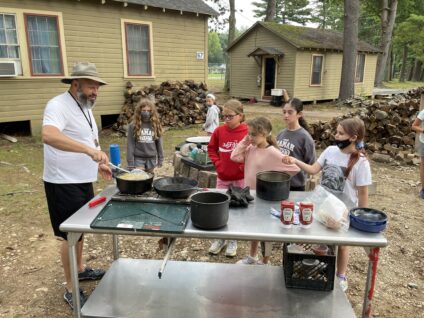
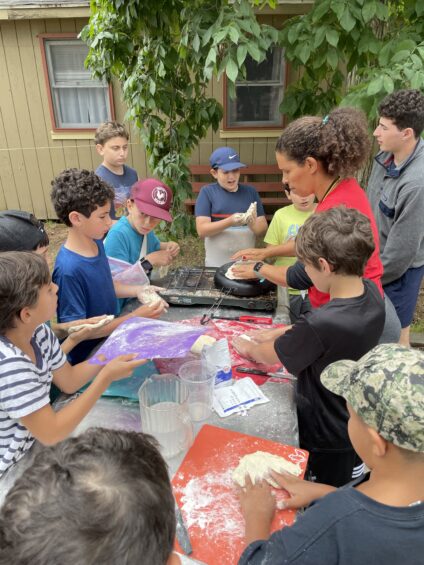
Gila also seeks to impart other lessons about our natural world. She points out that we are just visitors on the land, and that other creatures – such as the rabbits that nibble in the garden – make this land their home. She also emphasizes that our practices – such as feeding invasive beetles, leftover vegetables and egg shells to our chickens – closes the cycle of nature.
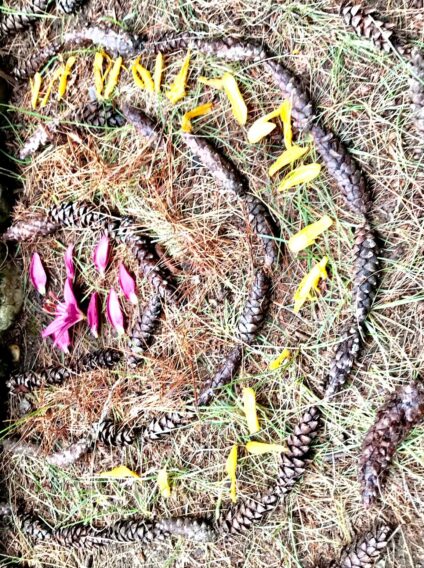
The Pinat Teva is a great place to deepen our connections to our environment, and to learn to be better stewards of nature. And its always fun to feed the animals, pick the vegetables, and make great food outdoors!
